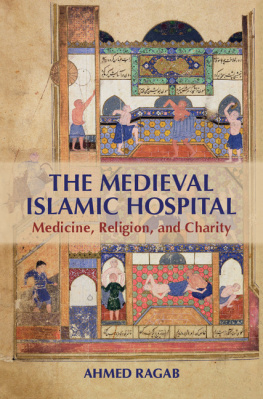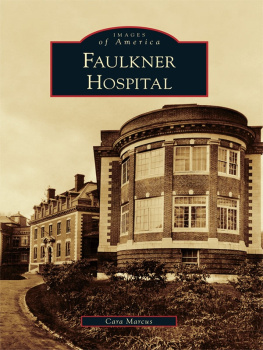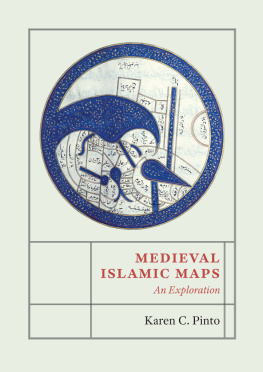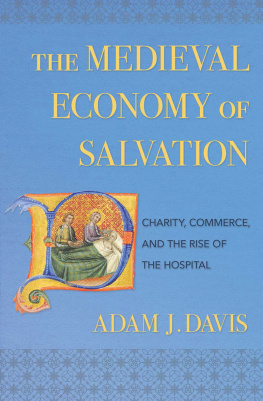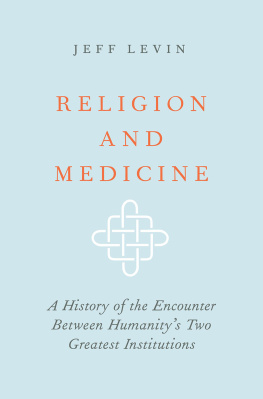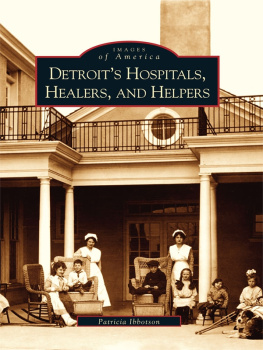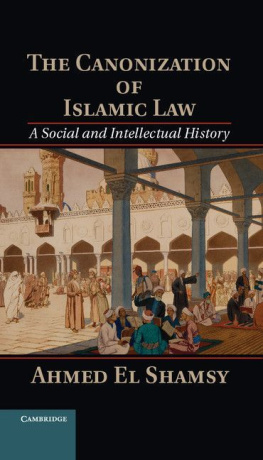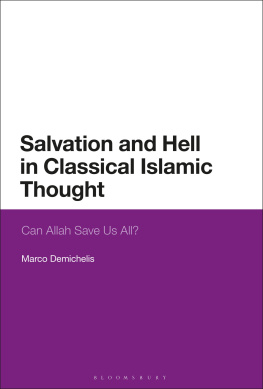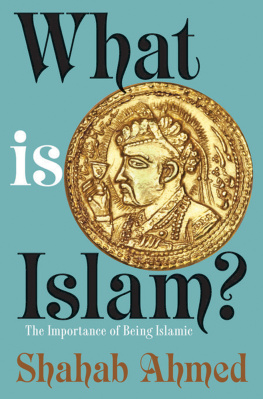The first monograph on the history of Islamic hospitals, this volume focuses on the underexamined Egyptian and Levantine institutions of the twelfth to fourteenth centuries. By the twelfth century, hospitals serving the sick and the poor could be found in nearly every Islamic city. Ahmed Ragab traces the varying origins and development of these institutions, locating them in their urban environments and linking them to charity networks and patrons political projects. Following the paths of patients inside hospital wards, he investigates who they were and what kinds of experiences they had. The Medieval Islamic Hospital explores the medical networks surrounding early hospitals and sheds light on the particular brand of practice-oriented medicine they helped develop. Providing a detailed picture of the effect of religion on medieval medicine, it will be essential reading for those interested in the history of medicine, history of Islamic sciences, or history of the Mediterranean.
Ahmed Ragab is the Richard T. Watson Assistant Professor of Science and Religion at Harvard Divinity School, where he also directs the Science, Religion, and Culture Program. He is a member of the Commission on History of Science and Technology in Islamic Societies and the International Society for Science and Religion.
32 Avenue of the Americas, New York, NY 10013-2473, USA
Cambridge University Press is part of the University of Cambridge.
It furthers the Universitys mission by disseminating knowledge in the pursuit of education, learning, and research at the highest international levels of excellence.
www.cambridge.org
Information on this title: www.cambridge.org/9781107109605
Ahmed Ragab 2015
This publication is in copyright. Subject to statutory exception and to the provisions of relevant collective licensing agreements, no reproduction of any part may take place without the written permission of Cambridge University Press.
First published 2015
Printed in the United States of America
A catalog record for this publication is available from the British Library.
ISBN 978-1-107-10960-5 Hardback
Cambridge University Press has no responsibility for the persistence or accuracy of URLs for external or third-party Internet Web sites referred to in this publication and does not guarantee that any content on such Web sites is, or will remain, accurate or appropriate.
To Soha and Carmen
Acknowledgments
I am fortunate that I have many people to acknowledge for their help with this project and that the debts accrued in the making of this book have led to valuable intellectual encounters and the reinforcement of treasured relationships that continue to enrich my life and scholarship after this project has been completed. My friend, mentor, and adviser, Anne-Marie Moulin, watched this project develop from its earliest phases and was present not only as it took shape, but also as I became a historian. Her mentorship, companionship, and friendship will always lie behind my work as a historian of science. I was also so fortunate as to work with Danielle Jacquart, whose work helped shape the history of medieval sciences as we know it; it has been an honor and a privilege to participate in so distinguished a scholarly tradition. Danielle Jacquarts comments, interventions, and advice were integral to my work. I am also grateful to my friend, colleague, co-instructor, and co-author (of another book!), Katharine Park. She remains a mentor and interlocutor to whom I owe much. Katy spent many hours with the draft of this book; thanks to her suggestions, a more coherent story and decisive voice emerged.
I cannot describe my gratitude to Anne Harrington a central force in my development as a scholar whose encouragement and mentorship continue to inspire and guide my work. I am deeply indebted, too, to Janet Brownes continued care, advice, and support, and for her investment in my growth as a scholar. Bill Grahams and Janet Gyatsos counsel and guidance bore tremendous impact on my scholarship, as well as on the development of this project over the past years. I am also much obliged to David Hempton for all he has done to facilitate my work and scholarship.
Faye Bodley-Dangelo edited the book and helped guide it to its current state. Joseph Vignone and Hadel Jarada helped me revise the transliterations. Anna Attaway, Lewis West, and Will Morningstar patiently and carefully copyedited and proofread the final version of the book, with Anna and Lewis making sure that the narrative was lucid and unencumbered by errors or oversights. Alex Chen helped me with the preparation of the maps and illustrations. I am beholden to them all.
The comments of my anonymous reviewers were integral to the development of this project and the execution of the book; their insights and views were very beneficial and are much appreciated. I have also been grateful, throughout this process, for the sure hands of Laura Morris my editor at Cambridge University Press and for her care of the manuscript and project as a whole, which were a major force in bringing it to completion.
It is hard to imagine being here without the care, support, encouragement, and doubts of my parents. Their love and dedication to the education and well-being of my siblings and myself are at the heart of all that I do.
Throughout the years of working on this project and of writing this book, there has been one person, especially, who stood by me through it all: my love, partner, wife, and friend, Soha Bayoumi. Her insights and opinions helped move this research on to more interesting, more innovative grounds. Her patience with the emotional and psychological toll that this work exacts allowed the book to come to life. As the book was slowly coming together, our little one, Carmen, arrived in our family. It is not possible to describe the joy that she brought, and continues to bring, to our lives. No words can describe my gratitude for all that Soha did at that time to allow this book to come to life and how she did so with such grace, love, care, and personal investment. This book is as much hers as it is mine.
Preface
For a long time, the study of the history of Islamic hospitals has focused on what Michael Dols called their apparent modernity. Earlier historians of Islamic medicine were attracted to what seemed to be a premodern ancestor of modern hospitals: Islamic hospitals were seen as relatively secular (to use Dolss terms again) because they were run by physicians or state officials and not by religious scholars and also because they had non-Muslim physicians working in them. This medical nature of the Islamic hospital was embodied in a number of qualities, namely, that it was designed and managed by educated Galenic physicians; furthermore, the hospital focused on the sick with the intention of curing rather than isolating them (and, because of this, hospitals were built in the centers of cities and not on their outskirts) and sponsored medical education and training.
As such, the Islamic hospital stood in contrast to earlier and contemporary charitable institutions, where physicians had little role or control and care was generally focused either on the needy such as paupers, the hungry, crippled, blind, and the like or on a specific group of diseased people that the institution cared for but isolated, like lepers. The Islamic institution was thus medicalized in that it was not a hospice, an orphanage, or a leprosarium. This focus on medicalization as a distinctive characteristic of hospitals in general, and of Islamic hospitals in particular, legitimized and prompted investigations into the origins of these hospitals. When did the first (true) Islamic hospital appear? What are the premedicalized, prehospital origins of these practices? And how did they become medicalized over time? Finally, how and when did the hospital deteriorate, or lose its medical nature by allowing religious scholars to dominate the field and the institution?

